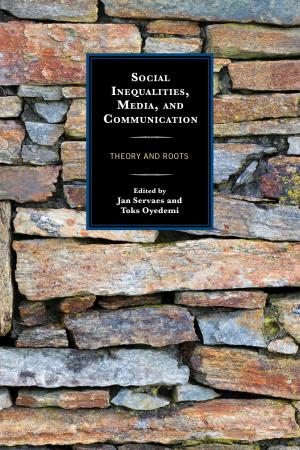Adam and Eve in Scripture, Theology, and Literature
Sin, Compassion, and Forgiveness
Nonfiction, Religion & Spirituality, Bible & Bible Studies, Old Testament, Criticism & Interpretation, Philosophy| Author: | Peter B. Ely | ISBN: | 9781498573900 |
| Publisher: | Lexington Books | Publication: | January 15, 2018 |
| Imprint: | Lexington Books | Language: | English |
| Author: | Peter B. Ely |
| ISBN: | 9781498573900 |
| Publisher: | Lexington Books |
| Publication: | January 15, 2018 |
| Imprint: | Lexington Books |
| Language: | English |
Adam and Eve in Scripture, Theology, and Literature: Sin, Compassion, and Forgiveness is an extended consideration of the narrative of Adam and Eve, first seen in the Hebrew Bible but given new life by St. Paul in the New Testament. Paul’s treatment of Adam and Eve, especially his designation of Christ as a second Adam, has had an enormous influence in Christianity. Peter Ely follows this rich narrative as it develops in history, providing the basis of the doctrine of original sin in Christianity, giving rise in modern times to theological speculation, and entering thematically into mysticism and literature. The power of the adamic narrative can only be realized if one treats it as a true but non-historical myth. The “truth” of the myth lies in its ability to stimulate thinking and so reveal the depths of human experience. Augustine understood that, so did Julian of Norwich, and even the Belgian author of mystery stories, Georges Simenon, who had a deep sense of the universality of human weakness and the possibilities of redeeming what was lost. Simenon’s detective Maigret saw himself as a “mender of destinies.” The doctrine of original sin, the notion that human beings share a common vulnerability, can open the way to compassion and forgiveness. As Shakespeare illustrates in Measure for Measure, the awareness of weakness in ourselves should move us to compassion for others. The recognition of a kind of “democracy of sin” can keep us from considering ourselves better than others, unlike them in their weakness, and entitled to stand in judgment of them. Thus, compassion opens the door to forgiveness. The progress from sin to compassion to forgiveness forms the heart of this work.
Adam and Eve in Scripture, Theology, and Literature: Sin, Compassion, and Forgiveness is an extended consideration of the narrative of Adam and Eve, first seen in the Hebrew Bible but given new life by St. Paul in the New Testament. Paul’s treatment of Adam and Eve, especially his designation of Christ as a second Adam, has had an enormous influence in Christianity. Peter Ely follows this rich narrative as it develops in history, providing the basis of the doctrine of original sin in Christianity, giving rise in modern times to theological speculation, and entering thematically into mysticism and literature. The power of the adamic narrative can only be realized if one treats it as a true but non-historical myth. The “truth” of the myth lies in its ability to stimulate thinking and so reveal the depths of human experience. Augustine understood that, so did Julian of Norwich, and even the Belgian author of mystery stories, Georges Simenon, who had a deep sense of the universality of human weakness and the possibilities of redeeming what was lost. Simenon’s detective Maigret saw himself as a “mender of destinies.” The doctrine of original sin, the notion that human beings share a common vulnerability, can open the way to compassion and forgiveness. As Shakespeare illustrates in Measure for Measure, the awareness of weakness in ourselves should move us to compassion for others. The recognition of a kind of “democracy of sin” can keep us from considering ourselves better than others, unlike them in their weakness, and entitled to stand in judgment of them. Thus, compassion opens the door to forgiveness. The progress from sin to compassion to forgiveness forms the heart of this work.















